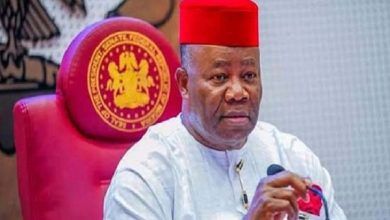
The House of Representatives has urged the Federal Government to reverse the recent increases in the prices of premium motor spirit (PMS), commonly known as petrol, and liquefied petroleum gas (LPG), popularly referred to as cooking gas. This call was made following a motion raised by Minority Leader, Rep. Kingsley Chinda (PDP-Rivers), during Wednesday’s plenary in Abuja.
Chinda stressed the urgent need for price relief interventions, including tax reductions or subsidies on cooking gas, particularly for low-income households. He highlighted that as an oil-producing nation, Nigeria has long relied on petroleum products and LPG as key energy sources for both domestic and industrial use.
However, Chinda expressed concern over the recent spike in petrol and cooking gas prices, which has placed a significant financial strain on everyday Nigerians, further worsening the already high cost of living. He pointed out that the removal of fuel subsidies, combined with global oil price fluctuations and the naira’s depreciation, has driven up the cost of these essential products.
“Nigerians are worried that the escalating fuel and gas prices are impacting transportation, food, essential goods, and healthcare, while also increasing inflation,” Chinda said. He emphasized that the continued rise in fuel and cooking gas prices is pushing many families into deeper financial distress and threatening the stability of small and medium enterprises (SMEs), which are struggling to cope with increasing operational costs.
Chinda further warned that without urgent action, Nigeria risks facing an economic crisis with negative outcomes such as increased crime rates and higher mortality due to financial hardship.
In response, the House of Representatives called on the Nigerian National Petroleum Corporation Limited (NNPCL), the Ministry of Petroleum Resources, and other relevant agencies to expedite the repair and maintenance of Nigeria’s domestic refineries. According to lawmakers, boosting local refining capacity would help reduce the nation’s dependence on imported refined petroleum products, providing some relief from the escalating fuel costs.
The House also urged the Central Bank of Nigeria (CBN) to implement monetary policies aimed at mitigating the inflationary effects of the rising petrol prices, especially with regard to essential goods and services.
This resolution reflects growing concern among lawmakers about the impact of soaring energy prices on Nigeria’s economic stability and the well-being of its citizens.





